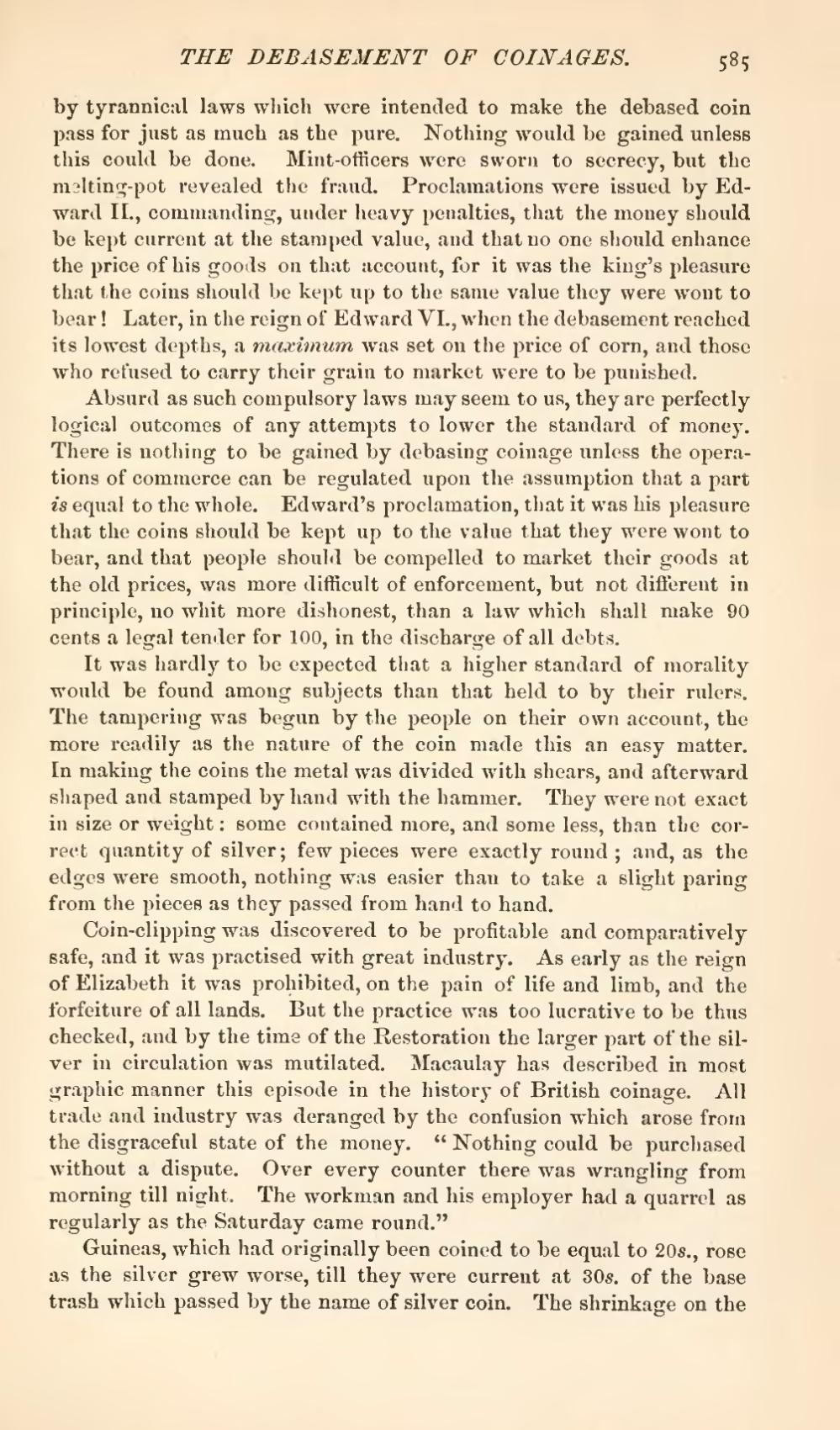by tyrannical laws which were intended to make the debased coin pass for just as much as the pure. Nothing would be gained unless this could be done. Mint-officers were sworn to secrecy, but the melting-pot revealed the fraud. Proclamations were issued by Edward II., commanding, under heavy penalties, that the money should be kept current at the stamped value, and that no one should enhance the price of his goods on that account, for it was the king's pleasure that the coins should be kept up to the same value they were wont to bear! Later, in the reign of Edward VI., when the debasement reached its lowest depths, a maximum was set on the price of corn, and those who refused to carry their grain to market were to be punished.
Absurd as such compulsory laws may seem to us, they are perfectly logical outcomes of any attempts to lower the standard of money. There is nothing to be gained by debasing coinage unless the operations of commerce can be regulated upon the assumption that a part is equal to the whole. Edward's proclamation, that it was his pleasure that the coins should be kept up to the value that they were wont to bear, and that people should be compelled to market their goods at the old prices, was more difficult of enforcement, but not different in principle, no whit more dishonest, than a law which shall make 90 cents a legal tender for 100, in the discharge of all debts.
It was hardly to be expected that a higher standard of morality would be found among subjects than that held to by their rulers. The tampering was begun by the people on their own account, the more readily as the nature of the coin made this an easy matter. In making the coins the metal was divided with shears, and afterward shaped and stamped by hand with the hammer. They were not exact in size or weight: some contained more, and some less, than the correct quantity of silver; few pieces were exactly round; and, as the edges were smooth, nothing was easier than to take a slight paring from the pieces as they passed from hand to hand.
Coin-clipping was discovered to be profitable and comparatively safe, and it was practised with great industry. As early as the reign of Elizabeth it was prohibited, on the pain of life and limb, and the forfeiture of all lands. But the practice was too lucrative to be thus checked, and by the time of the Restoration the larger part of the silver in circulation was mutilated. Macaulay has described in most graphic manner this episode in the history of British coinage. All trade and industry was deranged by the confusion which arose from the disgraceful state of the money. "Nothing could be purchased without a dispute. Over every counter there was wrangling from morning till night. The workman and his employer had a quarrel as regularly as the Saturday came round."
Guineas, which had originally been coined to be equal to 20s., rose as the silver grew worse, till they were current at 30s. of the base trash which passed by the name of silver coin. The shrinkage on the
